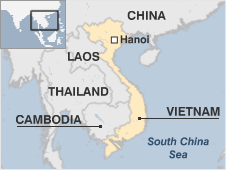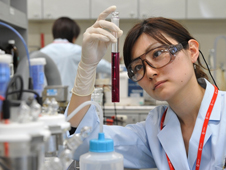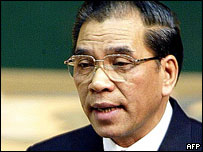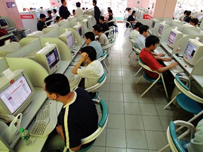Generic Medicines
Taj Pharma is the largest generic pharmaceutical company in India. We hold top positions in different established markets worldwide generics markets..

The Vietnam Pharmaceuticals and Healthcare Report has been researched at source and features the latest available data and forecasts to end-2015 covering drugs and healthcare expenditure, the prescription, OTC and generics markets, and foreign trade; company rankings and competitive landscapes including multinational and national drugs companies; and analysis of latest industry news, trends and regulatory developments.
Business Monitor International’s Vietnam Pharmaceuticals and Healthcare Report provides industry professionals, market investors and corporate and financial services analysts with independent forecasts and competitive intelligence on the Vietnamese pharmaceutical & healthcare industry.
Vietnam a one-party communist state has one of south-east Asia's fastest-growing economies and has set its sights on becoming a developed nation by 2020.
 |
It became a unified country in 1976 after the armed forces of the communist north had seized the south of the country in the previous year.
This followed three decades of bitter independence wars which the communists fought first against the colonial power France then against US-backed South Vietnam. In its latter stages this conflict held the attention of the world.
The US had entered hostilities to stem the "domino effect" of successive nations falling to communism.
The jungle war produced heavy casualties on both sides atrocities against civilians and the indiscriminate destruction and contamination of much of the landscape.
A visit to Vietnam by US President Bill Clinton in November 2000 was presented as the culmination of American efforts to normalise relations with the former enemy.

A lab technician working in one of our 16 applications and formulation laboratories that allow us to formulate the best solutions.
|
Vietnam struggled to find its feet after unification and it tried at first to organise the agriculture-based economy along strict collectivist lines.
But elements of market forces and private enterprise were introduced from the late 1980s and a stock exchange opened in 2000.
Foreign investment has grown and the US is Vietnam's main trading partner. In the cities the consumer market is fuelled by the appetite of a young middle class for electronic and luxury goods. After 12 years of negotiations the country joined the World Trade Organization in January 2007.
But the disparity in wealth between urban and rural Vietnam is wide and some Communist Party leaders worry that too much economic liberalisation will weaken their power base and introduce "decadent" ideas into Vietnamese society.
Vietnam has been accused of suppressing political dissent and religious freedom. Rights groups have singled out Hanoi's treatment of ethnic minority hill tribe people collectively known as Montagnards.
President: Nguyen Minh Triet
Parliament confirmed Nguyen Minh Triet the head of the Communist Party in Ho Chi Minh City as president in June 2006. He has a reputation for fighting corruption and is seen as an economic reformer.
The former head of state Tran Duc Luong had submitted his resignation alongside the prime minister and the chairman of the National Assembly. The change of guard had been expected.
Secretary-general of the Communist Party: Nong Duc Manh

Nong Duc Manh aims to modernise Vietnam
|
The Communist Party holds the real power in Vietnam. It reappointed Nong Duc Manh as its secretary-general in April 2006.
Mr Manh who is seen as a moderniser urged Vietnam to speed up economic reforms and to tackle bureaucracy and deep-rooted corruption.
He says he wants to "lift people from poverty and hunger" and to turn Vietnam into a developed industrialised country.
Mr Manh began his first term in 2001 becoming the first secretary-general with no direct experience of the struggle for independence. He oversaw five years of strong economic growth.
The Communist Party leadership recommends candidates for the posts of president and prime minister.
The Communist Party has a strong grip on the media. The Ministry of Culture and Information controls the press and broadcasting.
 Internet cafes must register the personal details of customers
|
The government has shut down several publications for violating the narrow limits on permissible reporting. Journalists face large fines for transgressions which include denying revolutionary achievements and spreading "harmful" information or "reactionary ideology".
There are hundreds of newspapers and magazines but television is the dominant medium. Vietnam Television (VTV) broadcasts from Hanoi and is available via satellite to the wider region. There are many provincial stations. Some foreign channels are carried via cable.
State-run Voice of Vietnam (VoV) operates six radio networks including the VoV 5 channel with programmes in English French and Russian.
There were around 20 million internet users by June 2008 (InternetWorldStats). Internet providers face fines or closure for breaking the rules and "cyber dissidents" have been imprisoned.
The press
Television
News agency
Vietnam News Agency

AFRICA | ASIA-PACIFIC | AMERICAS | EUROPE | MIDDLEEAST | SOUTHASIA
![]()
![]()
![]()
Mauritania Mauritius Morocco Mozambique Namibia Niger Nigeria Republic-of-congo Rwanda Sao-tome-and-principe Senegal Seychelles Sierra-leone Somalia South-africa Sudan Swaziland Tanzania The-gambia Togo Tunisia Uganda Australia Brunei Burma Cambodia China East-timor Fiji Indonesia Japan Kazakhstan Kiribati Kyrgyzstan Laos Malaysia Marshall-islands Micronesia Mongolia Nauru New-zealand North-korea Palau Papua-new-guinea Samoa Singapore Solomon-islands South-korea Taiwan Tajikistan Thailand The-philippines Tonga Turkmenistan Tuvalu Uzbekistan Vanuatu Vietnam Antigua-and-barbuda Belize Bolivia Brazil Canada Chile Colombia Costa-rica Cuba Dominica Dominican-republic Ecuador El-salvador Grenada Guatemala Guyana Haiti Honduras Jamaica Mexico Nicaragua St-kitts-and-nevis St-lucia Suriname Trinidad-and-tobago Uruguay Venezuela Albania Andorra Armenia Austria Azerbaijan Belarus Belgium Bosnia-hercegovina Bulgaria Croatia Cyprus Czech-republic Denmark Estonia Finland France Georgia Germany Greece Hungary Iceland Ireland Italy Latvia Liechtenstein Lithuania Luxembourg Macedonia Malta Moldova Monaco Montenegro Norway Poland Portugal Russia San-marino Serbia Slovakia Slovenia Spain Sweden Algeria Egypt Iran Iraq Israel-and-palestinian-territories Jordan Kuwait Lebanon Libya Mauritania Oman Saudi-arabia Sudan Syria Tunisia United-arab-emirates Yemen Afghanistan Bangladesh Bhutan India Nepal Pakistan Sri-Lanka The-Maldive